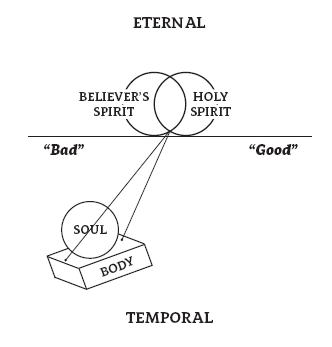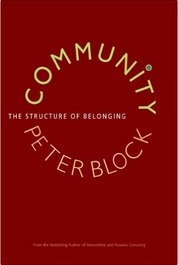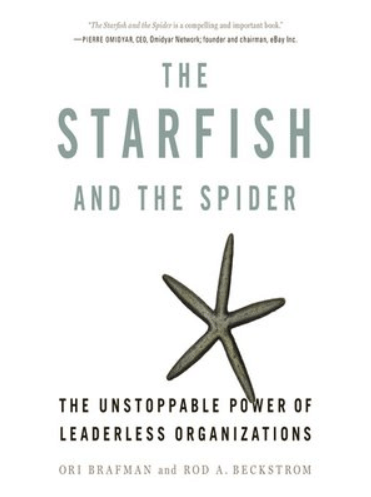 The Rest of the Gospel: When the Partial Gospel Has Worn You Out
The Rest of the Gospel: When the Partial Gospel Has Worn You Out
by Dan Stone and David Gregory
Hopefully the title of this book intrigues you. The authors are implying that their potential readers likely have only heard part of the good news, and, as a consequence, are missing out on the inner rest that knowing the complete gospel affords.
Dan Stone experienced considerable frustration in his attempts to live out the Christian life until God finally opened his eyes to the realities of the finished work of Christ and the indwelling Holy Spirit. He spent the next twenty-four years traveling and speaking about the mystery of the gospel: “Christ in you the hope of glory.” He wrote:
Christ living in us and through us, as us, is the only hope we have of experiencing the glory God intends for our lives. David Gregory and I have written this book to help you enter into Christ’s fullness in your life. [Stone, Dan; Gregory, David. The Rest of the Gospel: When the Partial Gospel Has Worn You Out (p. 11). Harvest House Publishers. Kindle Edition.]
Part One: Union with Christ
The first six chapters of the book deal with the foundational realities Paul taught in Romans 6-8. I had the great privilege of being introduced to these truths near the beginning of my journey with the Lord through reading Watchman Nee’s fabulous book, The Normal Christian Life. I have discovered over the years, however, that many, if not most, followers of Christ do not understand these things. The work of the cross rendered a death blow to the power of sin and the Law to rule over us. Believers have died to sin and the Law and have been joined to Christ in the Spirit. This combination of death and life is the source of our ability to live as overcomers by faith.
Part Two: Soul and Spirit
To experience our union with Christ, the Holy Spirit has to give us revelation on two truths. First, we have to have a revelation that we died in Christ, that we are dead to sin, dead to the law, and dead to ourselves as our point of reference. Second, we have to have a revelation on the difference between soul and spirit and how to manage it. Until these two truths become fixed in our spiritual consciousness, we’re never truly going to live out of union. (p. 78)
 The authors effectively use an example of a swing to communicate the difference between soul and spirit. The idea is that we are firmly anchored in Christ to an unchanging and stable relationship with God in the spirit in the eternal realm. In the temporal realm, where the body and soul abide, our experience is variable and changing. This is not necessarily a bad thing. It is just how things are. When we understand that we must live by faith in the unchanging realities in the spirit, it brings peace and rest to our souls. We no longer measure “how we are doing” by how the soul and body are faring or feeling. Instead, we always go back to our rest in the eternal position we have in Christ.
The authors effectively use an example of a swing to communicate the difference between soul and spirit. The idea is that we are firmly anchored in Christ to an unchanging and stable relationship with God in the spirit in the eternal realm. In the temporal realm, where the body and soul abide, our experience is variable and changing. This is not necessarily a bad thing. It is just how things are. When we understand that we must live by faith in the unchanging realities in the spirit, it brings peace and rest to our souls. We no longer measure “how we are doing” by how the soul and body are faring or feeling. Instead, we always go back to our rest in the eternal position we have in Christ.
Part Three: Who Are You?
In this section, the authors teach that we must make the choice to identify with the new creation rather than the part of us the Bible calls the “flesh” or “old man.”
The flesh, or the false self, is simply the body and the soul operating apart from the Holy Spirit. (p. 102)
[Personally I define the “flesh” a little differently by emphasizing the link it has with the unredeemed body. Until they are resurrected in power, our bodies are still connected to the first Adam and link us to the fallen human condition. I believe the soul is a result of the combination of spirit with body. (Genesis 2:7) The new birth initiates a regeneration of the spirit, but this new spirit still lives in a fallen body which is destined to die and rise again. As such, the souls of unresurrected believers are in conflict, being the product of the new and old order of things. This accounts for the inner struggles we experience. (Galatians 5:17)]
The authors show us that the flesh has been crucified with Christ and stripped of its power to rule us (Romans 6:6), but it was not annihilated. It is still with us, ready to spring into action when we allow it. It never can be reformed or tamed. It must be continually put to death through faith in Christ’s finished work and the power of the Spirit. We must make the choice to identify with the new creation person rather than the old creation flesh. They encourage us to…
Thank God for your warts. Praise God for them, because He’s going to make them a blessing in somebody else’s life. Take back your humanity as the dwelling place of the Most High God. Make peace with you. When the Holy Spirit showed me that it pleased God to live in me, then I had to be satisfied with me. God was. Let it dawn on you that you are no longer a liability to God. You are a wonderful and beautiful and necessary asset. You are the vessel by which the world drinks. You are the means by which the world sees the love and life of God. As we rest in that, we move into a permanent position of being a faith person. (p. 120)
Part Four: Knowing God’s Ways
I finally had to say, “Lord, I’m tired of disagreeing with you. I’m tired of You saying through Your Spirit and the Word that certain things are true, and I’m saying back to you, ‘They’re not true.’ The only thing this produces is inner dissatisfaction and unrest. I’m tired of this roller-coaster Christianity. Up and down. Hot and cold. Lord, I’m going to do something that is crazy for me. I’m going to agree with you. I’m going to believe three things, even though they don’t look true in my life.” I said to God, “You say in Romans 8: 1, ‘There’s no condemnation.’ I’ve been saying there is condemnation. So now I agree with you. There is no condemnation for those who are in Christ Jesus. I am in Christ Jesus. There’s no longer any condemnation for me. I won’t take any more condemnation for anything that comes down the pike. And we’ll see what happens.” There was a second one: no separation. I said, “Lord, all these years I’ve known nothing but separation. I’ve known some nearness to You, but nearness still has some space in it— varying degrees of separation. But You say there’s no separation. I’ll agree with you. There’s never again any possibility of separation between me and You. If I’m really joined to You and You really express yourself through me, there’s no separation. I agree with you.” Then the final one: God causes all things to work together for good. I said, “How can that be? I’ve spent my life saying things don’t work together for good. But if You say they do, I’ll agree with You. All things work together for good to me.” (p. 131)
This section contains several excellent chapters describing the ways of God in the Spirit.
Part Five: Living in Union
This section goes into more depth on the central idea of the book that the ability to live the Christ life is derived from Christ’s actually living within and through us, as Paul described in Galatians.
"I have been crucified with Christ; and it is no longer I who live, but Christ lives in me; and the life which I now live in the flesh I live by faith in the Son of God, who loved me and gave Himself up for me. Galatians 2:20 (NASB)
The authors have an interesting chapter on temptation, from which I quote below.
Temptation is absolutely necessary in our life. If we see that, we see Satan is no longer our enemy because we’re seeing him from God’s point of view as a necessary prerequisite in our life for faith activity. When you’re no longer doing battle with Satan, you’ve pulled the stinger out of him. Not that we start calling evil good or we start denying Satan. I’m not saying that at all, because Satan is alive and present. But Jesus disarmed him at the cross (Colossians 2: 15). He no longer has any power over you. The minute you see that he no longer has any power over you, isn’t it amazing— you stop acting as if he has power over you. (p. 196)
This chapter addresses what is one of the most challenging aspects of living out of the spiritual reality of Christ’s finished work and the indwelling spirit. We still can be and are tempted to do evil, and our old man (the flesh) is entirely in agreement with the temptation. We must choose at this point whether to agree with the implied lie that sin is still alive and well in us or with the truth that we are dead to sin and alive to God. This is a faith choice made in agreement with God’s Word and in union with God’s indwelling Spirit.
There is a helpful section on how to hear God. The authors are careful to avoid formulas, but they give principles, while encouraging the reader that all children of God have the innate ability to hear God’s voice through the Spirit. (John 10:27) I have found over the years that many followers of Christ do not recognize God’s voice, but once they begin to understand how God communicates, it becomes much easier for them to discern what he is speaking to them. I quote one paragraph below.
Second, we can do things to cultivate our ability to hear Him. One is to spend time with Him alone, just listening. I’ve observed that it’s very hard for most Christians to be all alone. We want someone to talk to because when we’re talking, we don’t have to face ourselves. And when we’re talking, we don’t have to face God. Prayer is listening as well as talking. It’s difficult to listen, though. It’s challenging to believe that you actually hear. Take time in silence to listen. (pp. 204-205)
The chapter on making decisions is particularly helpful. While reminding us of the importance of seeking God in prayer, the authors write that we should have more confidence in our decision making ability, since we are actually in union with Christ and share his thoughts. In other words, don’t be too hasty to discount ideas and impressions, especially if your heart is to please God.
Concluding Thoughts
This is an excellent book that is filled with practical examples of how to live out of our union with Christ through the Spirit. If you are a person who struggles with being “good enough,” please read this book. If you already know a lot about life in the Spirit, you should read this book, too. It cannot do anything but help.



